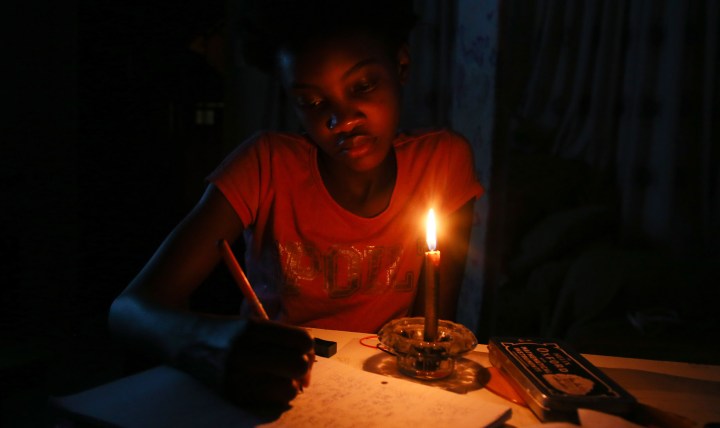ELECTRICITY & EDUCATION OP-ED
SA’s matrics deserve the same electrifying support as the Boks with access to power during exams

Monday, 30 October, marked the beginning of the 2023 final Grade 12 exams. It also marked the return of load shedding after it was suspended for nine days, a period in which the Springboks brought some light to South Africa by winning the Rugby World Cup and were welcomed as heroes on their return from France.
The matric exams are the most heavily weighted exam in a learner’s schooling career.
This year, nearly 1 million learners in South Africa have embarked on this examination journey and the stark realities of the country have dimmed the hopes of many. In a country deeply entrenched in social injustice and inequity, coupled with a severely strained economy and dire living conditions for the majority of people, education as a stepping stone to breaking cyclical poverty is becoming less achievable.
Electricity is undeniably a human right, acknowledged by the United Nations as essential for fulfilling basic needs. Access to electricity is intrinsically tied to improved educational outcomes. Learners rely on electricity to study after dark, access digital resources and create an environment conducive to learning. Conversely, the absence of electricity exacerbates educational disparities, leaving many learners unable to complete homework, study effectively or access online educational materials.
Prioritising electricity supply in schools is paramount to ensuring uninterrupted academic activities. Furthermore, many matriculants are faced with additional challenges that go beyond power outages, reflecting deep-rooted systemic issues that stem from apartheid. Educational inequalities persist, disproportionately affecting learners based on their background, exacerbated by Covid-19’s impact on disadvantaged communities without alternative power sources or academic support during outages.
By ensuring universal access to electricity, South Africa can significantly enhance educational opportunities, empowering its youth and fostering a more equitable society. This will lay the groundwork for a brighter future, nurturing a nation in which all individuals have equal access to the tools and resources necessary for educational success.
We call on the government and Eskom to urgently revisit their support and commitment to advancing education, a national mandate and right enshrined within our Constitution. Our children are stronger together and this strength rests on their fair access to electricity during their examinations. DM
Haseena Majid is a senior Fellow of the Atlantic Fellows for Health Equity in South Africa (Afhesa) and a public health consultant at Usawa. Additional contributions by Afhesa Fellows Rene Sparks, Nomfundo Mkhaba and Yvette Andrews.





















 Become an Insider
Become an Insider
What a heading ‘electrifying support’ hat’s off to the Author/publisher/editor 😂😂
It’s evidence that newspapers will never go out of fashion as I as a teen get very excited to read newspaper articles ONLY IF THEY HAVE SUCH HEADINGS.
Hahahahaha – good luck with that!
Oh and pray tell, how is it that Eskom and state education, that has been systematically destroyed, looted and plundered by the ANC for the past 30 years stems from Apartheid? Pisspoor excuses for a failed state